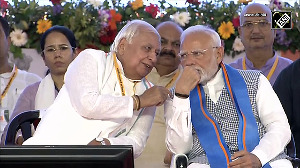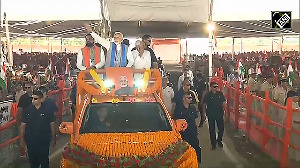Private FM radio channels will soon be allowed to broadcast news but will have to source it from the All India Radio (AIR), a senior government official said on Monday. "In a short time private FM (radio) channels will be able to carry news as these channels will be allowed to broadcast news bulletins of the All India Radio, unaltered," Additional Secretary in the Information and Broadcasting Ministry Rajiv Takru told reporters in Gurgaon.
"In a short time private FM (radio) channels will be able to carry news as these channels will be allowed to broadcast news bulletins of the All India Radio, unaltered," Additional Secretary in the Information and Broadcasting Ministry Rajiv Takru told reporters in Gurgaon.
While he did not elaborate on the time frame, Takru said the government is working on different modules, including
designing two minutes news capsules for the private FM channels, in case they are unable to carry fifteen minutes
bulletin broadcast by AIR.
"AIR will monetise this initiative," he said, adding, the government is also considering to allow live sports commentary on the private stations but did not provide details.
At present private radio stations are not allowed to broadcast news. The government's new move comes at a time when it is in the process of finalising the process for the third phase of FM radio expansion in India.
"We intend to start the (FM) phase three as soon as possible. It is on a final stage. Within the next 2-3 months
we should be able to have a final view taken by the government and inshaallah we should be up and running," Takru said.
The private players want the government to kick off the FM radio Phase-III expansion at the earliest.
"We want the government to make an announcement on Phase-III as quickly as possible because the entire industry
has been waiting for it.
This process has been going on for the last couple of years and there is still no clarity on exactly when and how this will be carried out," Radio City CEO Apurva Purohit told PTI.
Unlike the first two phases, the government is taking the e-auction route for giving license of the FM Phase-III.
Asked about the pricing and the kind of revenues that the government will generate, he said: "The base price will be at par with the highest price across categories and locations for the licenses during the phase two of the FM launch."
The government has created several categories, including a special one for regions like the borders areas, Jammu and Kashmir, the North Eastern states and island territories.
Takru said the government will incentivise companies seeking license for the special category by charging lower fee, sharing its infrastructure, among others, since it is not economically favourable for firms to operate in such markets.
After the third phase, about 800 radio stations in about 283 cities and towns are expected to be operational, up from 245 channels in 84 locations at present.








